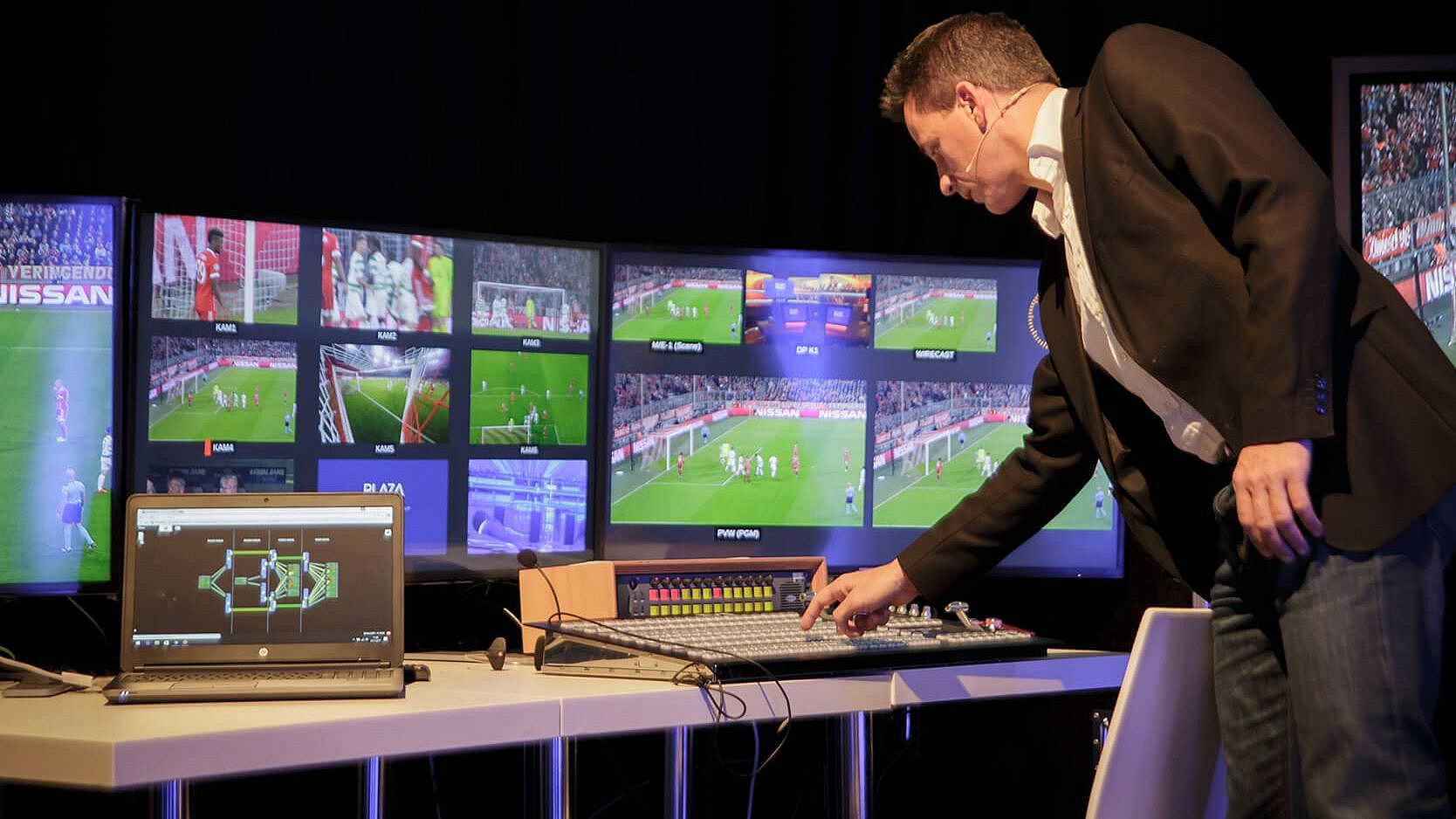Moderated by SPORT1 presenter Ruth Hofmann, the event was attended by representatives of renowned media companies with an interest in sports. It began with an explanation of the technical fundamentals and challenges of IP-based production. Using the example of Germany’s leading soccer talk show CHECK24 Doppelpass, which PLAZAMEDIA has produced remotely from the Hilton Munich Airport for over a year, it was demonstrated that remote production is no longer just a theoretically discussed on-trend topic, but actual reality. The technical advantages, such as optimized workflows, maximum redundancy and lower total overhead at the production site, were explained and existing preconceptions dispelled. Thanks to a live link from the UEFA Europa League studio implemented via remote-based technology, participants could see for themselves that this production method does not lead to any noticeable latency.
The second part of the workshop focused on the editorial benefits. With remote productions, individual signals accumulate in the broadcast center – something that is not possible in an OB unit. This can significantly increase the breadth of the obtained content and open up new possibilities for utilizing additional content. Changing usage habits are making these options more and more relevant. The youth audience in particular now expect additional value-adds from sports productions in the form of second- or even third-screen offerings. In the OB unit, this editorial enhancement of the visual experience comes up against natural spatial limits. For example, integrating social media here requires considerable extra work, which can be avoided by linking up the existing technology in the broadcast center.
Based on the recorded UEFA Champions League game between Bayern Munich and Glasgow Celtic, participants were shown examples of possible add-ons to their content. This was demonstrated practically by a director who, on another screen on set, edited highlight clips from the game being shown in parallel with the event. These can be played out on various channels, for instance – as was demonstrated live – on social media. Another example was the further utilization of an alternative camera signal, which captures the reactions and emotions of the manager during the match. This additional feed can be made accessible to interested users on second-screen channels live, either during or immediately after the game.
The final item on the agenda showed that this enhancement of the content can also provide additional monetary benefits. Potential revenues from expanded marketing opportunities were discussed using a concrete example.
The conclusion of the workshop, which finished with a get-together for the guests and PLAZAMEDIA speakers, was that while remote will not completely replace traditional OB-unit production in the near future, it does offer great potential for projects with the right conditions and especially sports productions.
